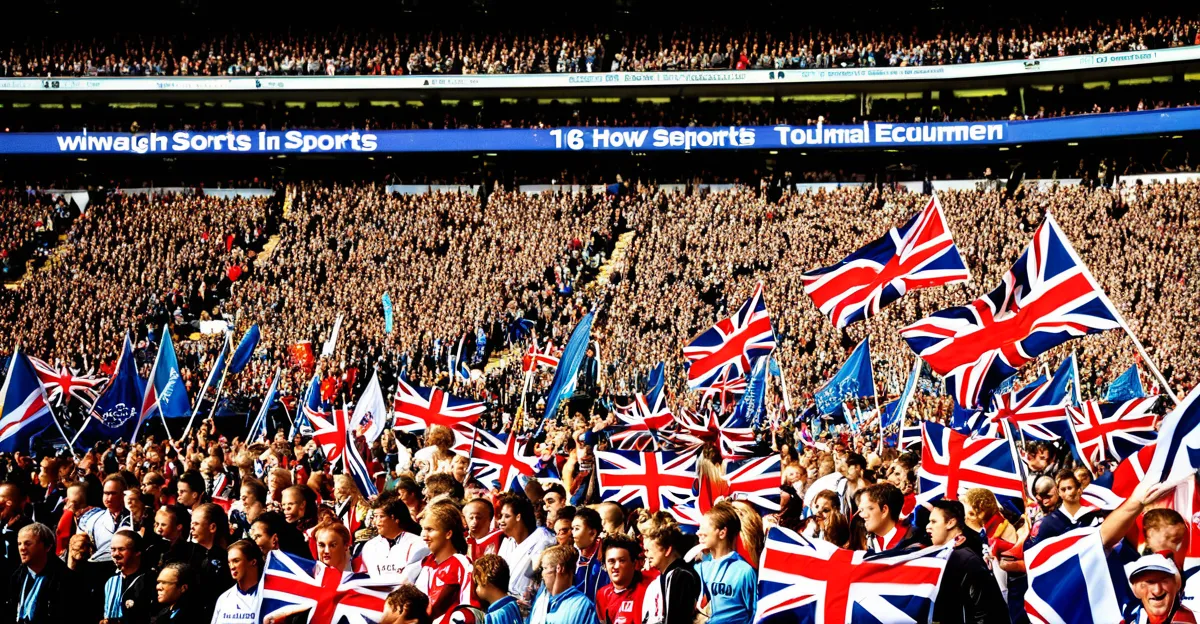Overview of UK Sports Events
The UK is globally renowned for its diverse sports events, which serve as pivotal cultural and economic assets. These events are not only celebrated for their competitive spirit but also for their role in promoting tourism and cultural exchange. The Royal Ascot, the British Grand Prix, and the Premier League season are prime examples of activities that draw in tourists from around the world, enabling them to experience the rich tapestries of British traditions first-hand.
Significance of UK Sports Events
Sports events in the UK are more than just competitions; they embody the heart of cultural exchange and unity. Such events draw significant tourism, contributing to the local economy and enhancing the UK’s global image. Major events also serve as platforms for cultural exchange, giving visitors the chance to engage with local traditions, and fostering diverse interactions. Sports events thus play a crucial role in positioning the UK as a desirable destination for international visitors, allowing them to participate in cultural narratives that are both historic and contemporary.
Also read : How are UK sports initiatives promoting inclusivity?
Historical Context
Historically, the UK has been a cradle for sports like cricket, rugby, and football, with deep roots in cultural exchanges. The legacy of these sports highlights their capacity as mechanisms for cultural diplomacy and exchange, facilitating interactions across borders. The tradition of sports in the UK continues to embrace visitors, promoting not just the love of the game, but a deeper understanding of different cultures and societies.
Through these aspects, UK sports events indeed function as a vibrant tapestry, weaving together the bonds of tourism and cultural unity.
Also to see : How Does the UK’s Sport Culture Influence Community Building?
Economic Impact of Sports Events on Tourism
Sports events in the UK significantly influence the local economy. During these events, an influx of international visitors contributes to a surge in tourism statistics, providing a financial boost to local businesses. For instance, when high-profile events like the British Grand Prix or Wimbledon take place, local hotels are booked to capacity, and restaurants see increased patronage, as visitors fill their itineraries with local attractions and activities beyond the sports events.
Furthermore, tourist spending patterns during such events highlight their economic contributions. Attendees typically spend on accommodations, dining, transport, and souvenirs, injecting much-needed capital into the region. This spending not only benefits service sectors but also stimulates growth in new infrastructure developments, such as improved transport links and expanded event venues, which can continue to attract tourists long after events conclude.
In terms of job creation, sports events are catalysts for employment opportunities, both temporary and permanent. Staffing requirements increase across various sectors, including hospitality, event management, and retail, offering jobs to local residents. Additionally, the global spotlight on these events can attract long-term investments, further boosting the local economy.
In summary, UK sports events serve as significant economic engines, underpinning tourism growth while fostering job creation and infrastructure advancement.
Case Studies of Prominent UK Sports Events
When we talk about UK sports events, several iconic gatherings immediately spring to mind. These events not only celebrate athletic prowess but serve as crucial nodes of cultural and international exchange. Among these, the Rugby World Cup, Wimbledon, and the London Marathon stand out, each leaving an indelible mark on both tourism and the local economy.
The Rugby World Cup and Its Impact
The Rugby World Cup is a prime example of how sports can catalyse both tourism and cultural exchanges. During the World Cup, a significant surge in international visitors is observed, showcasing its tourist influx. This event brings together participants and fans from various nations, making it a hotbed for cultural interactions. Through the universal language of sport, the Rugby World Cup facilitates global dialogues and fosters enduring friendships across borders, proving to be more than just a competition.
Wimbledon: More than Just Tennis
Wimbledon, renowned for its grass courts and impeccable traditions, transcends being a mere tennis event. As a global cultural event, it attracts spectators worldwide, eager to experience the quintessentially British summer spectacle. Beyond showcasing elite sportsmanship, Wimbledon significantly boosts the local economy. The influx of visitors leads to increased spending in hospitality, retail, and tourism sectors, positively impacting local businesses. This annual spike demonstrates the economic benefits that accompany such prestigious sporting events.
The London Marathon’s Role in Tourism
The London Marathon demonstrates the dual role of promoting both health and international camaraderie. Each year, the marathon draws a diverse range of participants from around the globe, increasing international visitors significantly. It beautifully blends the spirit of competition with wellness promotion, encouraging people to engage with each other culturally, while advocating for a healthy lifestyle. This event proves that sports can be a vibrant conduit for cultural exchanges, further highlighting the UK’s ability to host events that are both festive and inclusive.
Cultural Exchange Through Sports
Sports events in the UK play a pivotal role in fostering cultural exchange, bringing together diverse spectators and participants. Cultural exchange is a hallmark of sporting events, offering a platform for multicultural interactions. Events like the Rugby World Cup and Wimbledon aren’t just about competition; they symbolize a gathering of global communities where diverse cultural narratives are celebrated.
Diversity in sporting events facilitates an environment for international friendships and collaborations. For example, both players and audiences engage in cultural dialogues, experiencing traditions and customs different from their own. Partnerships between UK and international organizations further enhance this by promoting sporting and cultural exchanges. These collaborations lay the groundwork for deeper cultural understanding and mutual appreciation.
The enduring legacies of these sports events are evident in the shared experiences and connections they create. Many events have led to permanent exchanges, fostering global ties that extend beyond the sports arena. As such, sports events serve as significant cultural ambassadors, reinforcing the UK’s status as a hub for vibrant and inclusive international collaboration.
Promotion of Local Culture Through Sports Events
Sports events in the UK are invaluable platforms for showcasing and promoting local culture. They provide an intersection where regional traditions meet global enthusiasts. By integrating local customs into the fabric of these events, communities can deliver a rich cultural narrative that enhances visitor experiences.
Community Engagement and Visitor Experiences
Engagement with the local community is a cornerstone of these events. A distinctive advantage of UK sports events is their ability to involve local residents. From culinary delights to traditional crafts, communities eagerly participate, offering unique experiences to international visitors. This involvement not only adds authenticity but also deepens visitors’ appreciation of the host culture.
Showcasing Regional Traditions
Several events incorporate local traditions alongside the primary sporting activity, providing a comprehensive cultural showcase. Whether it’s the Highland Games with Scottish elements or the traditional beer festivals accompanying the Ashes cricket series, these events celebrate the diverse cultural fabric of the UK. Spectators appreciate the opportunity not only to witness athletic prowess but also to partake in regional rituals and festivities.
Sports events, therefore, serve as conduits for cultural storytelling, allowing the community’s heritage to be a focal point for international onlookers. This vibrant blend serves to enrich the overall experience for tourists, making their visit more memorable and culturally rewarding.
Insights from Experts and Tourism Officials
In the dynamic landscape of UK sports events, the perspectives of expert opinions and tourism officials offer valuable insights into the future of sports tourism and cultural exchange. Speaking to sports and tourism experts, they emphasize that sports events are not just athletic displays but are pivotal for enhancing cultural dialogues. As experts suggest, the enduring appeal of UK sports events lies in their ability to foster international bonds and celebrate diversity.
Future trends indicate a continued focus on integrating technology with fan experiences. Experts predict more interactive elements and digital engagement strategies, ensuring that both local and international visitors find more avenues to participate and connect. Meanwhile, tourism officials are keen to leverage sports events to further promote the UK’s cultural assets. They highlight upcoming strategic initiatives aimed at amplifying the economic and cultural benefits of these events. This includes investments in infrastructure, ensuring that the UK remains a top destination for sports enthusiasts.
Experts also stress the importance of collaboration between international organizations and local bodies. By building on successful models from events like the Rugby World Cup and Wimbledon, there is potential for deeper cultural exchanges and enhanced tourism experiences. The vision forward involves a holistic framework where sports events are key to both tourism growth and the celebration of global cultural narratives.







